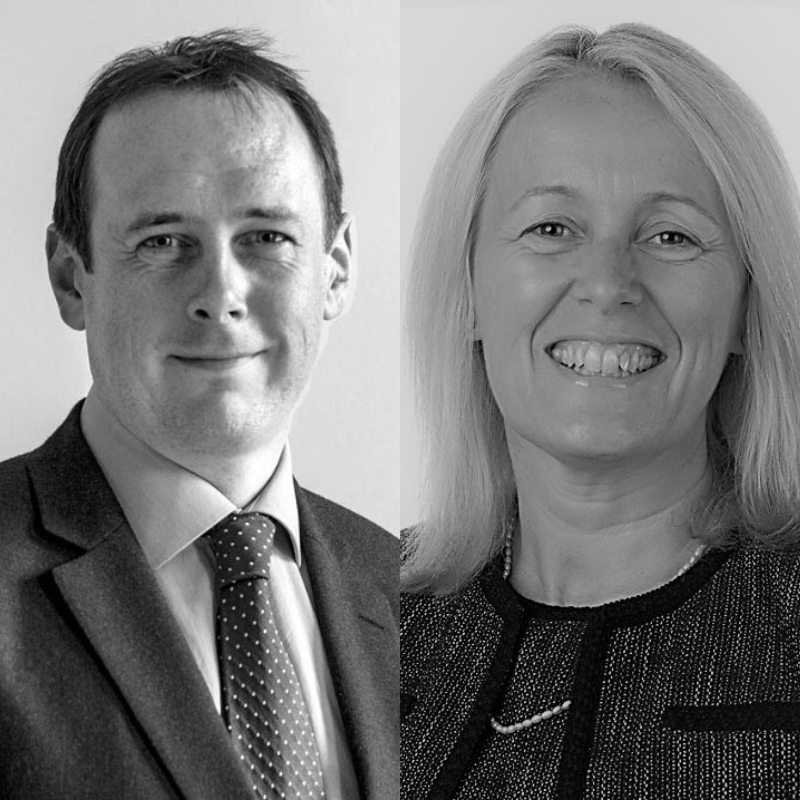This note considers the basis on which a judge in civil litigation might be recused (withdrawn) from a case and
some aspects of the procedure.
Clerks Details
- Clerk Name: Russell Porter
- Clerk Telephone: 01865 793 736
- Clerk Email: [email protected]
- Clerk Name: Gemma Faulkner
- Clerk Telephone: 020 7583 8055
- Clerk Email: [email protected]
Overview
Mathew Gullick KC is an experienced High Court and appellate advocate. He has appeared in more than 30 substantive appeals in the Court of Appeal and the UK Supreme Court, most recently in the leading holiday pay case of Harpur Trust v Brazel [2022] UKSC 21, [2022] ICR 1380. He has also had significant involvement in highly complex and long-running matters, including Public Inquiry and Group Litigation experience, and appeared in the Grand Chamber of the European Court of Human Rights in Nealon & Hallam v United Kingdom (Judgment 11th June 2024).
Mathew’s litigation practice is focused on public law and employment. He has appeared in the Court of Appeal, the Administrative Court and the Upper Tribunal on a wide range of public law matters. In the employment context, he acts for both claimants and respondents (public, private and third sector) across the field of employment law in the Employment Tribunals and the courts.
Mathew has extensive experience of advising and appearing on jurisdictional, procedural and costs issues in all types of civil litigation, including in relation to many of the more obscure provisions of the applicable legislation and rules. Several of his cases are cited as precedents in the leading textbooks on civil procedure. He has been involved in numerous high value costs matters, including multi-million pound costs claims in group litigation, and has twice been instructed as specialist costs Counsel to make post-judgment submissions on costs to panels of the UK Supreme Court.
Mathew is a member of the Chartered Institute of Arbitrators (MCIArb). From September 2018 to September 2024, he served a six-year fixed term as a Deputy High Court Judge, assigned to the King’s Bench Division. He was additionally authorised to sit as a judge of the Administrative Court and in the Employment Appeal Tribunal (EAT), and undertook a wide range of interlocutory, trial and appellate work in these judicial roles.
Prior to taking Silk in March 2021, Mathew was for 13 years a member of the Attorney-General’s panels of junior Counsel to the Crown in civil matters, including five years on the London A Panel. From July 2015 to November 2018, he was part of the Counsel team instructed by the UK Government in the Kenyan Emergency Group Litigation (KEGL), in which more than 40,000 individuals unsuccessfully brought claims in the High Court arising from their experiences during the ‘Mau Mau’ Emergency in the 1950s. The KEGL was one of the longest-running trials in English legal history, sitting in court for 230 days between the start of the trial in May 2016 and its conclusion in November 2018. The case involved wide-ranging and complex issues including in relation to jurisdiction, limitation, constitutional law, tort (negligence, vicarious liability and common design), evidence and civil procedure.
From January to December 2020, he was instructed by Ofsted on several of the Investigations conducted by the Independent Inquiry into Child Sexual Abuse (IICSA), including those into Child Sexual Exploitation by Organised Networks and into Effective Leadership of Child Protection in which Ofsted was a Core Participant.
Mathew has been nominated for the Bar Pro Bono Award three times, on the second occasion receiving a special commendation from the judging panel. He is a member of the Advocate (formerly Bar Pro Bono Unit) panel of case reviewers, and has worked as a volunteer for the charity Bridging the Bar since its foundation in 2020. In July 2024, Mathew was elected as a Bencher (member of the governing body) of Gray’s Inn.
Outside the courtroom, Mathew has represented the Bar of England & Wales at four Lawyers’ Cricket World Cups (2007-2016).
Reported Cases Include:
R (on the applications of ADL & Others) v Secretary of State for the Home Department [2024] EWHC 994 (Admin), [2024] 4 WLR 63 – leading case on the lawfulness of using electronic monitoring as a condition of immigration bail, including the retention and use of GPS trail data by the Home Office.
Harpur Trust v Brazel [2022] UKSC 21, [2022] ICR 1380 – workers on permanent contracts who performed work for only part of the year (e.g. during academic terms) were entitled to the full 5.6 weeks’ paid holiday under the Working Time Regulations 1998, which could not be reduced on a pro-rata basis.
SC (paras A398-399D: ‘foreign criminal’: procedure) [2020] UKUT 187 (IAC), [2020] Imm AR 1121 – approach to human rights claim raised in response to deportation decision by foreign national whose criminal offence was committed abroad.
R (on the application of Jalloh) v Secretary of State for the Home Department [2020] UKSC 4, [2021] AC 262 – a requirement to abide by an overnight home curfew, enforced by electronic tagging, constituted an imprisonment of the claimant for the purpose of the tort of false imprisonment.
R (on the applications of Nealon and Hallam) v Secretary of State for Justice [2019] UKSC 2, [2020] AC 279 – Article 6.2 ECHR not applicable to decisions to refuse award under statutory compensation scheme for miscarriages of justice; scheme would not breach Article 6.2 even if applicable.
Kimathi & Others v Foreign and Commonwealth Office [2017] EWHC 3379 (QB), [2018] 4 WLR 48 – Article 9 of the Bill of Rights prevents reports of Parliamentary debates being used as evidence of the truth of the extraneous facts referred to by Members of Parliament in those debates.
Mahmud (s.85 NIAA 2002 - 'new matters') [2017] UKUT 488 (IAC), [2018] Imm AR 264 – a decision of the Upper Tribunal which gives guidance on the correct approach to considering a ‘new matter’ in statutory appeals, under s.85 of the Nationality, Immigration and Asylum Act 2002 (as amended).
Kimathi & Others v Foreign and Commonwealth Office [2016] EWHC 3005 (QB), [2017] 1 WLR 1081 – CPR 3.9 could not be used to validate a claim which was a nullity because the claimant was dead when the claim was brought in his name.
Publications
Contributor to “Millington and Sutherland Williams on the Proceeds of Crime” (Fourth Edition, 2013, Fifth Edition, 2018, and Sixth Edition 2023) (Oxford University Press)
“Recusal of Judges in Civil Litigation”, Thomson Reuters Practical Law, February 2022
“Corner House Revisited: The Law Governing Protective Costs Orders”, Judicial Review March 2009, [2009] JR 43
“Cutting Back on Custody”, New Law Journal 11th February 2005, (2005) 155 NLJ 220
“The Criminal Justice Act 2003: Sentencing and Early Release of Fixed-Term Prisoners”, Criminal Law Review August 2004, [2004] Crim LR 653
“Political Donations and Political Expenditure by Companies: The Authorisation and Disclosure Requirements of the Companies Act 1985”, Business Law Review March 2003, (2003) 24 Bus LR 48
“Sentencing and the Home Detention Curfew Scheme”, Criminal Law Review May 2002, [2002] Crim LR 391
Mathew also assisted with the Third Edition (2004), Fourth Edition (2006) and Fifth Edition (2009) of “Understanding the Law” by His Honour Geoffrey Rivlin QC (Oxford University Press)
Public and Regulatory
Mathew Gullick KC accepts instructions in a wide range of public law matters, including (amongst other areas) immigration, issues relating to the criminal justice system and proceedings involving a wide range of other public bodies and local authorities.
In the immigration field, he has been instructed to appear in the UK Supreme Court, the Court of Appeal, the Administrative Court and the Upper Tribunal, and has been involved in numerous unlawful detention claims and deportation appeals. He has extensive experience of Points-Based System cases, having been instructed on several major appeals relating to the Post-Study Work route following its closure in April 2012.
Indicative immigration law cases are:
R (AAA & Others) v Secretary of State for the Home Department – counsel for the Secretary of State on the application for an interim injunction to prevent removals to Rwanda in June 2022 under the Migration and Economic Development Partnership (MEDP), [2022] EWHC 1686 (Admin), and on the claimants’ appeals to the Court of Appeal and the UK Supreme Court against refusal of interim relief.
SC (paras A398-339D: 'foreign criminal': procedure) Albania [2020] UKUT 187 (IAC), [2020] Imm AR 1121 – correct approach to Article 8 ECHR in deportation appeal of foreign national with overseas conviction for murder.
R (on the application of Jalloh) v Secretary of State for the Home Department [2020] UKSC 2, [2021] AC 262 – a requirement to abide by an overnight home curfew, enforced by electronic tagging, constituted an imprisonment of the claimant for the purposes of the tort of false imprisonment.
R (on the application of Singh) v Secretary of State for the Home Department [2019] EWCA Civ 1014, [2019] Imm AR 1275 – Upper Tribunal’s power to reverse oral grant of permission to apply for judicial review.
Mahmud (s.85 NIAA 2002 - 'new matters') [2017] UKUT 488 (IAC), [2018] Imm AR 264 - guidance on the correct approach to considering a ‘new matter’ in statutory appeals, under s.85 of the Nationality, Immigration and Asylum Act 2002 (as amended).
R (on the application of Idira) v Secretary of State for the Home Department [2015] EWCA Civ 1187, [2016] 1 WLR 1694 - detention in prison, under immigration powers, of time-served foreign national offender pending his deportation did not breach Article 5 ECHR.
Mandalia v Secretary of State for the Home Department [2015] UKSC 59, [2015] 1 WLR 4546 - application of the evidential flexibility policy to Points-Based System applications; meaning of document missing from a sequence or series.
R (on the application of Giri) v Secretary of State for the Home Department [2015] EWCA Civ 784, [2015] 1 WLR 4418 - Wednesbury review the correct approach to judicial review challenging findings of fact made in a decision under the Immigration Rules; no ‘heightened civil standard of proof’ in relation to findings of dishonesty.
R (on the applications of Mehmood and Ali) v Secretary of State for the Home Department [2015] EWCA Civ 744, [2016] 1 WLR 461 - lead appeal in the litigation arising from the ETS language testing scandal; removal decision under s.10 of the Immigration and Asylum Act 1999 invalidated leave extended by s.3C of the Immigration Act 1971; no ‘special or exceptional factors’ existed justifying recourse to judicial review where out-of-country statutory appeal available.
PF (Nigeria) v Secretary of State for the Home Department [2015] EWCA Civ 251, [2015] 1 WLR 5235 - correct approach to exercise of the ‘casting vote’ by presiding member of a panel of the First-tier Tribunal; Upper Tribunal hearing statutory appeal for error of law had no jurisdiction to consider legitimate expectation argument arising from Home Office’s actions after the First-tier Tribunal’s decision.
SE (Zimbabwe) v Secretary of State for the Home Department [2014] EWCA Civ 256, [2014] Imm AR 855 - prospects of rehabilitation in receiving country versus prospects in the UK not relevant to Article 8 ECHR balancing exercise when considering deportation of foreign criminal.
Syed & Others v Secretary of State for the Home Department [2014] EWCA Civ 196 - ACCA Professional Level Qualification was not a “UK recognised bachelor or postgraduate degree” so did not qualify for the award of points under the Tier 1 (Post-Study Work) route in the Immigration Rules; role of UK NARIC in assessing the level of non-degree qualifications obtained in the UK.
R (on the applications of Muazu and Adda) v Secretary of State for the Home Department [2013] EWHC 3764 (Admin) - detention of immigration detainees refusing food, fluid and medical treatment was not contrary to Home Office policy and was lawful under Articles 2 and 3 ECHR.
Secretary of State for the Home Department v Raju & Others [2013] EWCA Civ 754, [2014] 1 WLR 1768 - whether applicants under the Tier 1 (Post-Study Work) route in the Immigration Rules qualified for leave to remain when they had not obtained their degrees at the date of application.
Prison law claims
Mathew has also appeared in prison law claims and in cases involving challenges to refusals of applications for compensation for miscarriages of justice under the statutory scheme in the Criminal Justice Act 1988.
Notable cases include:
R (on the application of Kay) v Secretary of State for Justice [2021] EWHC 2125 (Admin), [2021] ACD 117 – Applicability of Article 6.1 ECHR to, and lawfulness of, procedure for determination of applications under statutory compensation scheme for miscarriages of justice.
R (on the applications of Nealon and Hallam) v Secretary of State for Justice [2019] UKSC 2, [2020] AC 279 - Article 6.2 ECHR not applicable to decisions to refuse award under statutory compensation scheme for miscarriages of justice; scheme would not breach Article 6.2 even if applicable.
R (on the applications of Clark and Drury) v Secretary of State for Justice [2015] EWHC 2383 (Admin) - relevance of the Crown Prosecution Service’s decision to abandon prosecutions at a re-trial following quashing of convictions by the Court of Appeal.
R (on the application of Andukwa) v Secretary of State for Justice [2014] EWHC 3988 (Admin), [2015] ACD 54 - where a conviction was reversed on the ground that there had been an available statutory defence which had been overlooked at trial, there was no ‘new or newly discovered fact’ and so compensation was not payable.
R (on the application of Hussain) v Secretary of State for Justice [2013] EWHC 1452 (Admin), [2013] ACD 117 - Category A prisoner not entitled to an oral hearing of his annual categorisation review; request for an oral hearing should have been made before the review was undertaken, not afterwards.
R (on the application of Adetoro) v Secretary of State for Justice [2012] EWHC 2576 (Admin), [2013] ACD 16 - lawfulness of decision to revoke earlier decision accepting Parole Board recommendation for move of Category A prisoner to open conditions.
In Secretary of State for Work and Pensions v Cattrell [2011] EWCA Civ 572, Mathew acted for the successful respondent in an appeal by the Secretary of State arising from the acceptance by the First-Tier and Upper Tribunals that there was no work that would be reliably safe for her as a result of a severe allergy, so that she was entitled to incapacity benefit. He has also acted in other benefit appeals involving similar issues.
Another area of interest is all aspects of the law relating to elections and political parties, especially electoral procedure and the law on political donations, as well as local government law, particularly the powers and duties of local authorities. Mathew acted for the appellant in Moss v KPMG LLP [2010] EWHC 2923 (Admin), a statutory appeal against the refusal of an auditor to apply for a declaration that an item in a local authority’s accounts covering income received from penalty charge notices levied on motorists was unlawful.
Mathew was a member of the pro bono team of barristers who appeared for the claimant in R (on the application of Compton) v Wiltshire PCT [2009] EWHC 1824 (Admin), in which the decisions of the Primary Care Trust in respect of facilities at Savernake Hospital in Marlborough were challenged. Cranston J's judgment set out the principles to be applied where it is alleged that the decisions of public authorities are vitiated by apparent bias on the part of their advisers.
Asset and Tax Recovery
Mathew Gullick KC’s asset forfeiture work has seen him appear in the UK Supreme Court and in both divisions of the Court of Appeal, as well as the Crown Court. He also has experience of drafting and appearing in proceedings relating to restraint and enforcement receivership orders and in contempt of court proceedings arising from breaches of restraint orders. His civil practice enables him to bring expertise from other fields, including employment and contract law, into the sphere of asset forfeiture work. He has been a contributor to the last three editions of “Millington and Sutherland Williams on the Proceeds of Crime” (Oxford University Press, Sixth Edition 2023).
In R v Ahmad and R v Fields [2014] UKSC 36, [2015] AC 299, Mathew was junior Counsel for the Home Secretary, an intervener in the Supreme Court, in what is now the leading case on the approach to be applied in confiscation proceedings when offenders have benefited jointly from their crime, the Court in its judgment reviewing the case law and explaining the effect of the seminal judgment of Lord Bingham in R v May on this point as well as dealing with the approach to be applied in situations of potential “multiple recovery”.
In Minshall v (1) HM Revenue and Customs (2) Crown Prosecution Service [2015] EWCA Civ 741, [2015] Lloyd’s Rep FC 515, he appeared for the CPS in the Court of Appeal in a case involving a claim for restitution of the sum paid under a confiscation order arising from a decision of the European Court of Human Rights in 2011 that there had been unreasonable delay (and a breach of Article 6(1) ECHR) in the criminal appeal proceedings, which had finally concluded in February 2006. The Court held that the European Court’s decision provided no basis for such a claim and that the confiscation order was final and conclusive.
Mathew has also appeared in the Court of Appeal in R v Lambert & Walding [2012] EWCA Crim 421, [2012] 2 Cr App R (S) 90 and R v Sivaraman [2008] EWCA Crim 1736, [2009] 1 Cr App R (S) 80, on the principles to be applied to the calculation of an offender’s benefit under the Proceeds of Crime Act 2002, and in RCPO v Deprince [2007] EWCA Civ 512, an innocent wife’s claim to a beneficial interest in the marital home which was subject to confiscation which also raised issues under the Human Rights Act.
-
Articles -
Recusal of Judges in Civil Litigation
16th Feb 2022View Article
-





